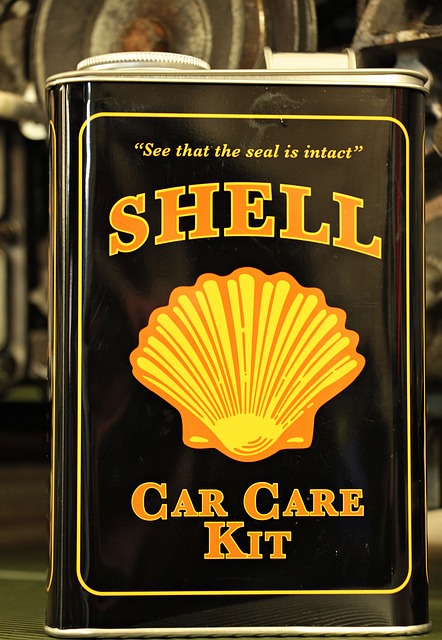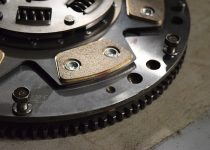What You Should Know About Fixing Your Automobile

It is not easy to figure out the world of automobile repairs. You may be surprised by how much you can learn.
Inspect your radiator once in a while. Let the car idle for a short period first, but only long enough to let the fluid circulate. Be careful not to open your radiator if the car’s running. Use a dipstick to check the radiator’s fluid level, and remember to always mix water in with your coolant if need be. Some coolants come premixed.
Never underestimate the value of keeping an emergency kit handy. You should put together a kit that includes the tools you need to change a tire, battery charger and a gas can.
Keep all of your car records handy. Put these records in the glove compartment in your car for easy access. Auto service experts may need to refer to them. The records can help them determine what is wrong with your car.
Make sure to have all repair records are kept close. You may want these with you when you go to get repairs done; a great place to store them in the glove compartment. The auto mechanic can look at those records. This will help them assess the process go more smoothly.
Regularly clean your headlights to keep them shining bright. Headlights often accumulate grime and other debris during normal use. Cleaning your lights with a glass cleaner will allow them to perform better.
Keep a record of every car is fixed or maintained. If further issues develop later, it may help the mechanic to see these notes.
Repairs like burned out taillights or headlights can be fixed on your own. Having a mechanic do it is horribly expensive. Ask whether someone you know can show you how to fix it.
Make sure that you replace old parts with OEM parts.These are original and from the manufacturer. While they often cost a little more, they are not held to the same quality standards. It may cost you more in the amount later as OEM components to begin with.
Cute keychains are fun, but they are not healthy for your car. Your car ignition shouldn’t have to hold so much weight. If your key starts sticking, you need to change the tumblers and eliminate the troll buddy that’s weighing down your keychain!
Don’t leave anything of value in your car while you’re having it repaired. Mechanics might have to empty the work and they cannot be held responsible if an item is damaged or missing. You want to remove items from your trunk.
Before you settle on a mechanic, inquire about their rates and prices. Ask questions until you are sure you have clear answers. It is crucial that you understand exactly how you will be billed for repairs. Some mechanics bill you for estimated labor times established by the manufacturers they work with. A repair that is called minor may actually take a long time, even all day, according to this manual.
Always think of how to fix your car’s problems yourself before you bring it in for repairs. You probably already know that certain mechanics will deceive you about your car repairs to charge more money.
Just because it’s winter doesn’t mean you should quit washing your vehicle. Believe it or not, the winter months are tough on your vehicle. Sand and salt on the roads can cause rust and corrosion. Your car should be dried thoroughly before getting back on the road again.
Replacing a burnt-out headlight or headlights yourself can save you do it by yourself.Some vehicles make it easier to do, but you can save a lot by doing it yourself regardless of how complex your system is. See if you know can get instructions from someone you trust.
Warranties are vital when your car gets fixed, particularly if your parts are expensive. Talk to your repairman about the warranty parts come with. See how long that warranty lasts and get a printed copy of that contract to review it.
Ask for labor rates and prices before giving the keys to a mechanic. Some repair shops display their rates, so you need to carefully read and ask any questions you have if something doesn’t make sense. You need to understand how the repairs are being billed to you. Some shops have the repair time estimates established by specific manufacturers. Some “Minor” repairs can take all day if they go by those manufacturers’ established times.
There are a lot of body shops that will put older tires on your car. It is a scam that is used to make more money off of uneducated people. Take a piece of chalk and mark the tires prior to dropping off your vehicle. If the marks are gone, talk to the mechanic.
Remember that you don’t need to use a mechanic for car problems. There are good mechanics all over the place. Find a mechanic who you are comfortable with and reliable.
A lot of people do not take their time to read through their vehicle’s manual when they have a problem. To better know your car, you should look over this manual. Maintenance is key, but can only be done if you know what is required.
There are several different classifications that determine the quality of parts. New parts come right from the manufacturer’s specifications. Refurbished or reconditioned parts are ones that these parts have been restored. Salvaged parts are second hand parts that have not been fixed.
Bleed your brakes after fixing them. Then pump out the brake fluid. Check to make sure there are no leaks that can cause the fluid to escape. Having done all this, you are ready to start your test drive on a road with minimal traffic. Drive slowly at first to make sure that the fix is good before you accelerate.
Some shops will give you old tires in the place of your tired with even older ones. It is a profit racketeering tactic that is used to make more money off of uneducated people. Mark your tires with some chalks before you drop your car to an auto shop. If you don’t have the chalk on your tires still when you pick the car up, you’ve been taken advantage of.
OEM is something that means Original Equipment Manufacturer. Remember this when you need a part replaced on your car. By communicating a preference for OEM parts, you appear knowledgeable and assertive. They will be less likely to place used parts in your automobile.
Don’t buy any parts that say they’re going to last forever. This is often simply a way to grab more of you. One example of this is transmission fluid will last a lifetime. While this does not need to be changed as often as typical fluid, you need to be sure it’s changed about every 80,000 miles or so.
Call the manufacturer for serious issues on a new vehicle. It’s possible there’s been a recall on that car, and you might not be the only one having the problem. Usually, manufacturers will repair your car.
Keep your vehicle repair and maintenance receipts in a file in your glove box. You can categorize them chronologically or by service repair type. This will also come in handy if you decide to sell your car.
After having a mechanic replace a car part, ask him to return the old one to you. If he cannot provide this, he may not have done anything with your car. This should be seen as a red flag and the person needs to be called out about it.
Set an expense limit that you are willing to let the mechanic reach without specific authorization. Don’t let the shop to make whatever repairs as they want after your drop off your car. Set a dollar amount that they can’t go over without contacting you first.
All auto repair receipts you have should be kept and filed. Sort your receipts by type or date. You need a record of the car’s maintenance so you can give it to mechanics later. This will also come in handy if you decide to sell your vehicle and want to let the buyer know about how much you invested in the vehicle.
Ask to get your old parts that had to be removed. This will help ensure that the repairs were actually been done. This isn’t particularly necessary for exhaust system changed.It is easy to see whether or not a new exhaust has been installed.
Work should never be done to a vehicle if you have a mechanic that’s having trouble figuring out what repairs will cost. You’ll have no written word of work done.
Do not put regular water inside of your car’s windshield cleaning compartment. Water is great for the body, but it may damage the compartment since it is designed to use special fluid. Check the compartment regularly and refill it as needed. Do not insist when the reservoir appears to be empty.
When discussing your car’s problem with a mechanic, question him about the repair and why it is needed. You need to get some details on the kind of repairs needed. When will the repairs be done? What’s being worked on? How much is the cost of the parts? Ask any other questions you can think of. Learning more about the issue is useful in case the problem arises again in the future and to show the mechanic you are informed.
Next time your vehicle needs attention, put this advice to good use. Lack of information can leave you overwhelmed, or worse, broke. Take charge of repairing your car, with a little advance knowledge and forethought you can get the best deal for the situation.
Visit the same shop time and time again if you are happy with the service. You’re more likely to have the work be satisfactory if you have a good relationship with the mechanic. You could qualify for discounts for being a loyal customer.


